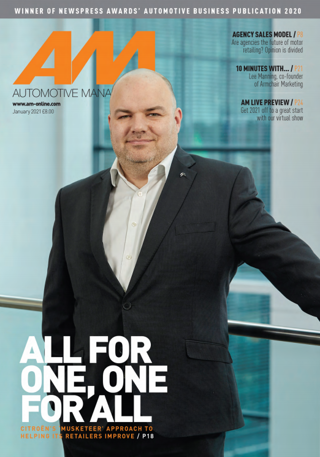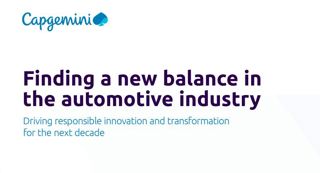ICDP has set aside a “pragmatic approach” to the evolution of motor retail in a new whitepaper which explores the impact of a ‘clean-slate’ shift omnichannel car distribution.
In a report officially launched today (February 10) it reveals the results of research – prompted by retailers and OEMs – which aims show the possibilities of a wholesale shift away from traditional retailing.
Describing the premise of the study, ICDP said: “If you had none of the legacy constraints, what might an omnichannel retail model for cars look like, and could you then apply some of that thinking to an established network?”
In the resulting model, which delivered a dramatic hub and spoke restructure of retail locations and the introduction of an agency model, ICDP predicted that manufacturer’s retail partners could achieve return on sales of up to 25.1% and a return on investment of 46.6%, figures which it acknowledged were “both dramatically higher than any traditional dealer today”.
ICDP drew on insight gained for the likes of Daewoo, Dacia, Qoros, Tata and Tesla to inform its direction with its automotive distribution strategy.
It said: “The traditional route to market is founded on a distribution model that is too expensive, accounting for roughly a third of the retail price of a car when customer discounts and dealer incentives are taken into account.”
 A strategy which reflected that agency model thinking explored by ICDP managing director, Steve Young, in his recent AM Live Virtual webinar – which is still available to view, by registering here – saw the ICDP base its calculations on a leasing, rather than sales, model.
A strategy which reflected that agency model thinking explored by ICDP managing director, Steve Young, in his recent AM Live Virtual webinar – which is still available to view, by registering here – saw the ICDP base its calculations on a leasing, rather than sales, model.
Marshall Motor Holdings chief executive, Daksh Gupta, also offered greater insight into his assertuon that he would "wholeheartedly embrace" an agency model in an interview at AM Live Virtual.
The ICDP's 'clean slate' report said that OEMs needed to ensure that they maintained greater control of a vehicle throughout its life-cycle, stating: “(OEMs) have failed to exploit as fully as they could the revenue and profit that is generated by the car across its lifecycle.”
Building on the traditional tools of service plans and warranties, it said that over the air upgrades and the possibility of “power by the hour” charging models were both possible solutions.
Suggesting that cars should be accessed in a “lease-only” model, ICDP said that customer relationships must be developed to extend beyond the traditional three-to-four-year period and into a vehicle’s ‘used car’ lifecycle.
It said that cars would likely be disposed of after eight years as the increased maintenance demands sees the balance of viability shift.
The ICDP report added: “As the manufacturer would own the cars throughout the extended operating cycle assumed in our business model, it makes no sense for them to be wholesaled through a franchised dealer network.”
As such, OEM partners would have their activities restricted to aftersales and handover duties.
This would mean a vastly-reduced investment in property and remove any need to hold vehicle inventory.
Without large-scale car showrooms, the ICDP study said that an OEM would need to rely on ‘big data’ rather than ‘big dealerships’ in order to grow awareness of its brand and products.
To receive a free copy of the new ICDP report email to projectoffice@icdp.net with your full contact details.


















Login to comment
Comments
No comments have been made yet.